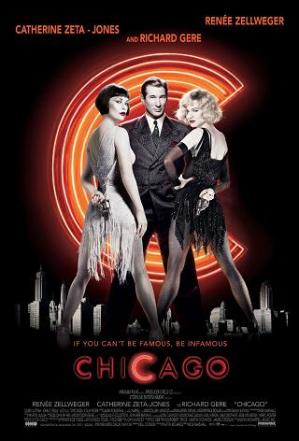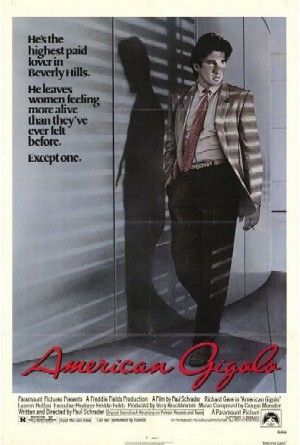So, this year I am making a sincere effort to review every film that I see. I know I say that every year but this time, I really mean it.
So, in an effort to catch up, here are four quick reviews of some of the movies that I watched over the past few weeks!

- Autumn in New York
- Released: 2000
- Directed by Joan Chen
- Starring Richard Gere, Winona Ryder, Anthony LaPaglia, Elaine Stritch, Vera Farmiga, Sherry Stringfield, Jill Hennessy, J.K. Simmons, Sam Trammell, Mary Beth Hurt
Richard Gere is Will, a fabulously wealthy New Yorker, who has had many girlfriends but who has never been able to find the one. He owns a restaurant and appears on the cover of New York Magazine. He loves food because, according to him, “Food is the only beautiful thing that truly nourishes.”
Winona Ryder is Charlotte, a hat designer who is always happy and cheerful and full of life. She’s the type who dresses up like Emily Dickinson for Christmas and recites poetry to children, though you get the feeling that, if they ever somehow met in real life, Emily would probably get annoyed with Charlotte fairly quickly. Actually, Charlotte might soon get to meet Emily because she has one of those rare diseases that kills you in a year while still allowing you to look healthy and beautiful.
One night, Will and Charlotte meet and, together, they solve crimes!
No, actually, they fall in love. This is one of those films where a young woman teaches an old man how to live again but then promptly dies so it’s not like he actually has to make a huge commitment or anything. The film does, at least, acknowledge that Will is a lot older than Charlotte but it still doesn’t make it any less weird that Charlotte would want to spend her last year on Earth dealing with a self-centered, emotionally remote man who is old enough to be her father. (To be honest, when it was revealed that Charlotte was the daughter of a woman who Will had previously dated, I was briefly worried that Autumn in New York was going to take an even stranger turn….)
On the positive side, the films features some pretty shots of New York and there is actually a pretty nice subplot, in which Will tries to connect with the daughter (Vera Farmiga) that he never knew he had. Maybe if Farmiga and Ryder had switched roles, Autumn in New York would have worked out better.

- Griffin & Phoenix
- Released: 2006
- Directed by Ed Stone
- Starring Dermot Mulroney, Amanda Peet, Blair Brown, and Sarah Paulson
His name is Henry Griffin (Dermot Mulroney).
Her name is Sarah Phoenix (Amanda Peet).
Because they both have highly symbolic last names, we know that they’re meant to be together.
They both have cancer. They’ve both been given a year to live. Of course, they don’t realize that when they first meet and fall in love. In fact, when Phoenix comes across several books that Griffin has purchased about dealing with being terminally ill, she assumes that Griffin bought them to try to fool her into falling in love with him. Once they realize that they only have a year to be together, Griffin and Phoenix set out to make every moment count…
It’s a sweet-natured and unabashedly sentimental movie but, unfortunately, Dermot Mulroney and Amanda Peet have little romantic chemistry and the film is never quite as successful at inspiring tears as it should be. When Mulroney finally allows himself to get mad and deals with his anger by vandalizing a bunch of cars, it’s not a cathartic moment. Instead, you just find yourself wondering how Mulroney could so easily get away with destroying a stranger’s windshield in broad daylight.

- Harry & Son
- Released: 1986
- Directed by Paul Newman
- Starring Paul Newman, Robby Benson, Ellen Barkin, Wilford Brimley, Judith Ivey, Ossie Davis, Morgan Freeman, Katherine Borowitz, Maury Chaykin, Joanne Woodward
Morgan Freeman makes an early film appearance in Harry & Son, though his role is a tiny one. He plays a factory foreman named Siemanowski who, in quick order, gets angry with and then fires a new employee named Howard Keach (Robby Benson). Howard is the son in Harry & Son and he’s such an annoying character that you’re happy when Freeman shows up and starts yelling at the little twit. As I said, Freeman’s role is a small one. Freeman’s only on screen for a few minutes. But, in that time, he calls Howard an idiot and it’s hard not to feel that he has a point.
Of course, the problem is that we’re not supposed to view Howard as being an idiot. Instead, we’re supposed to be on Howard’s side. Howard has ambitions to be the next Ernest Hemingway. However, his blue-collar father, Harry (Paul Newman, who also directed), demands that Howard get a job. Maybe, like us, he realizes how silly Howard looks whenever he gets hunched over his typewriter. (Robby Benson tries to pull off these “deep thought” facial expressions that simply have to be seen to be believed.) There’s actually two problems with Howard. First off, we never believe that he could possibly come up with anything worth reading. Secondly, it’s impossible to believe that Paul Newman could ever be the father of such an annoying little creep.
Harry, of course, has problems of his own. He’s just lost his construction job. He’s having to deal with the fact that he’s getting older. Fortunately, his son introduces him to a nymphomaniac (Judith Ivey). Eventually, it all ends with moments of triumph and tragedy, as these things often do.
As always, Newman is believable as a blue-collar guy who believes in hard work and cold beer. The film actually gets off to a good start, with Newman using a wrecking ball to take down an old building. But then Robby Benson shows up, hunched over that typewriter, and the film just becomes unbearable. At least Morgan Freeman’s around to yell at the annoying little jerk.

- The Life of David Gale
- Released: 2003
- Directed by Alan Parker
- Starring Kevin Spacey, Kate Winslet, Laura Linney, Gabriel Mann, Rhona Mitra, Leon Rippy, Matt Craven, Jim Beaver, Melissa McCarthy
For the record, while I won’t shed any tears whenever Dzhokahr Tsarnaev is finally executed, I’m against the death penalty. I think that once we accept the idea that the state has the right to execute people, it becomes a lot easier to accept the idea that the state has the right to do a lot of other things. Plus, there’s always the danger of innocent people being sent to die. The Life of David Gale also claims to be against the death penalty but it’s so obnoxious and self-righteous that I doubt it changed anyone’s mind.
David Gale (Kevin Spacey) used to the head of the philosophy department at the University of Texas. He used to be a nationally renowned activist against the death penalty. But then he was arrested for and convicted of the murder of another activist, Constance Harraway (Laura Linney) and now David Gale is sitting on death row himself. With his execution approaching, journalist Bitsey Bloom (Kate Winslet) is convinced that Gale was framed and she finds herself racing against time to prevent Texas from executing an innocent man…
There’s a lot of things wrong with The Life of David Gale. First off, it was made during the Bush administration, so the whole film is basically just a hate letter to the state of Texas. Never have I heard so many inauthentic accents in one film. Secondly, only in a truly bad movie, can someone have a name like Bitsey Bloom. Third, the whole film ends with this big twist that makes absolutely no sense and which nearly inspired me to throw a shoe at the TV.
Of course, the main problem with the film is that we’re asked to sympathize with a character played by Kevin Spacey. Even before Kevin Spacey was revealed to be a sleazy perv, he was never a particularly sympathetic or really even that versatile of an actor. (Both American Beauty and House of Cards tried to disguise this fact by surrounding him with cartoonish caricatures.) Spacey’s so snarky and condescending as Gale that, even if he is innocent of murder, it’s hard not to feel that maybe David Gale should be executed for crimes against likability.


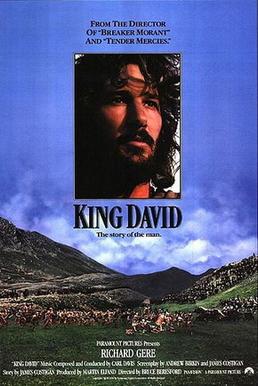
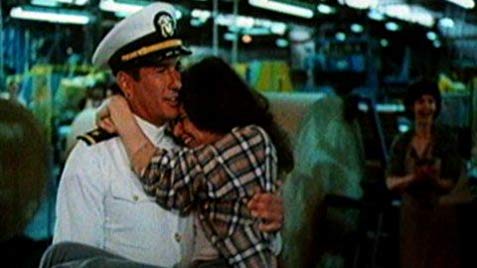





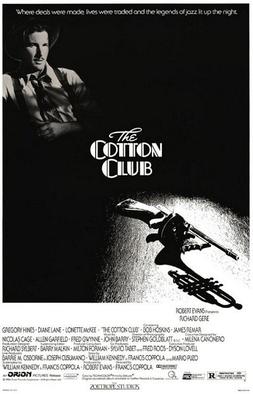 The time is the 1930s and the place is New York City. Everyone wants to get into the Cotton Club. Owned by British gangster Owney Madden (Bob Hoskins), the Cotton Club is a place where the stage is exclusively reserved for black performers and the audience is exclusively rich and white. Everyone from gangsters to film stars comes to the Cotton Club.
The time is the 1930s and the place is New York City. Everyone wants to get into the Cotton Club. Owned by British gangster Owney Madden (Bob Hoskins), the Cotton Club is a place where the stage is exclusively reserved for black performers and the audience is exclusively rich and white. Everyone from gangsters to film stars comes to the Cotton Club.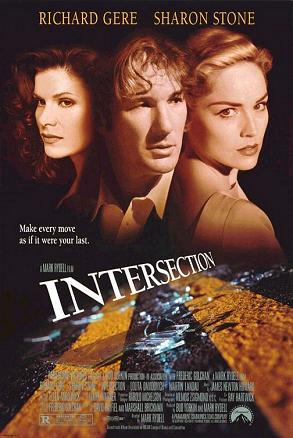 This one is just dumb.
This one is just dumb.